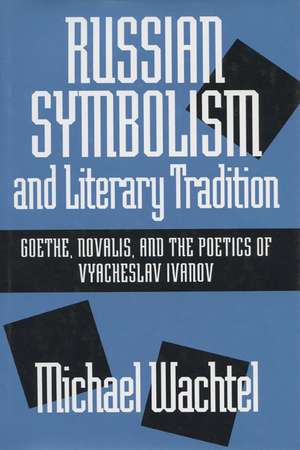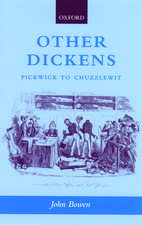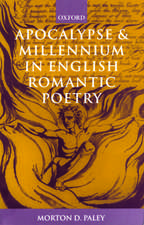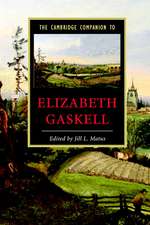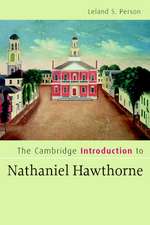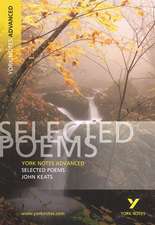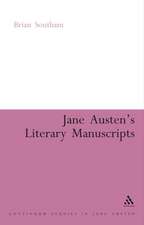Russian Symbolism & Literary Trad: Goethe, Novalis, And The Poetics Of Vyacheslav Ivanov
Autor Michael Wachtelen Limba Engleză Hardback – 14 mar 1995
Russian Symbolism, a movement at once literary and philosophical, flourished at the beginning of the twentieth century. Unlike other contemporaneous movements that renounced the influence and traditions of the past, the Symbolists sought to integrate themselves with their predecessors, and achieve in both life and art a fundamental unity. By linking poetry, religious thought, music, and the visual arts, and by discovering, reading, and disseminating the work of numerous foreign and indigenous writers, the Symbolists initiated a cultural renaissance in Russia wherein reception became the movement's guiding principle.
Michael Wachtel explores here the art and development of Vyacheslav Ivanov (1866–1949), a poet and theorist who articulated a highly influential concept of Symbolism. The German writers Goethe and Novalis played a central part in Ivanov's vision and were, in his mind, powerful precursors in a proto-Symbolist pantheon. Their work not only influenced his own writing but also, in maintaining the Symbolist creed of unity in art and life, altered his world perspective. Wachtel, in exploring Ivanov's relationship to Goethe and Novalis, illuminates the issues that lie at the core of Symbolism: the theory of the symbol, poetics, poetry as theurgy, the relationship between literary creation and "real life,"and the theory and practice of translation.
Ivanov's reception of the Germans, Wachtel asserts, is indicative of the fundamental Symbolist striving for spiritual and artist community, for establishing a seamless tradition. This strain of early twentieth-century thought, whose adherents include Mikhail Bakhtin, Martin Buber, and Ernst Robert Curtis, retains a pervasive potency in scholarly studies today. To understand Ivanov's integrating ideals, then, is to become conversant with a movement that continues to influence our understanding of culture.
Michael Wachtel explores here the art and development of Vyacheslav Ivanov (1866–1949), a poet and theorist who articulated a highly influential concept of Symbolism. The German writers Goethe and Novalis played a central part in Ivanov's vision and were, in his mind, powerful precursors in a proto-Symbolist pantheon. Their work not only influenced his own writing but also, in maintaining the Symbolist creed of unity in art and life, altered his world perspective. Wachtel, in exploring Ivanov's relationship to Goethe and Novalis, illuminates the issues that lie at the core of Symbolism: the theory of the symbol, poetics, poetry as theurgy, the relationship between literary creation and "real life,"and the theory and practice of translation.
Ivanov's reception of the Germans, Wachtel asserts, is indicative of the fundamental Symbolist striving for spiritual and artist community, for establishing a seamless tradition. This strain of early twentieth-century thought, whose adherents include Mikhail Bakhtin, Martin Buber, and Ernst Robert Curtis, retains a pervasive potency in scholarly studies today. To understand Ivanov's integrating ideals, then, is to become conversant with a movement that continues to influence our understanding of culture.
Preț: 395.17 lei
Nou
Puncte Express: 593
Preț estimativ în valută:
75.62€ • 82.39$ • 63.72£
75.62€ • 82.39$ • 63.72£
Carte tipărită la comandă
Livrare economică 23 aprilie-07 mai
Preluare comenzi: 021 569.72.76
Specificații
ISBN-13: 9780299144500
ISBN-10: 029914450X
Pagini: 256
Dimensiuni: 152 x 229 x 23 mm
Greutate: 0.5 kg
Editura: University of Wisconsin Press
Colecția University of Wisconsin Press
ISBN-10: 029914450X
Pagini: 256
Dimensiuni: 152 x 229 x 23 mm
Greutate: 0.5 kg
Editura: University of Wisconsin Press
Colecția University of Wisconsin Press
Recenzii
"Through assiduous research, including the archives of Moscow, St. Petersburg, Rome, Munich, Berlin, and Marbach and by deftly combining the latest tools of literary theory and biography with those of poetics, Wachtel has been able to reveal new meanings and stylistic characteristics in Ivanov's poetic practice. A prime example of a scholar writing for other scholars, this work will be of interest to Slavists, Germanists, and comparatists, and to scholars studying literary theory and history of poetics."
—André Von Gronicka, University of Pennsylvania
—André Von Gronicka, University of Pennsylvania
Notă biografică
Michael Wachtel is assistant professor in the Department of Slavic Languages and Literature at Princeton University. He has published several articles on Ivanov and German literature in Russian, German, and English. His book, A Commentary to Pushkin's Lyric Poetry, 1826–1836, is also published by the University of Wisconsin Press.
Descriere
Russian Symbolism, a movement at once literary and philosophical, flourished at the beginning of the twentieth century. Unlike other contemporaneous movements that renounced the influence and traditions of the past, the Symbolists sought to integrate themselves with their predecessors, and achieve in both life and art a fundamental unity. By linking poetry, religious thought, music, and the visual arts, and by discovering, reading, and disseminating the work of numerous foreign and indigenous writers, the Symbolists initiated a cultural renaissance in Russia wherein reception became the movement's guiding principle.
Michael Wachtel explores here the art and development of Vyacheslav Ivanov (1866–1949), a poet and theorist who articulated a highly influential concept of Symbolism. The German writers Goethe and Novalis played a central part in Ivanov's vision and were, in his mind, powerful precursors in a proto-Symbolist pantheon. Their work not only influenced his own writing but also, in maintaining the Symbolist creed of unity in art and life, altered his world perspective. Wachtel, in exploring Ivanov's relationship to Goethe and Novalis, illuminates the issues that lie at the core of Symbolism: the theory of the symbol, poetics, poetry as theurgy, the relationship between literary creation and "real life,"and the theory and practice of translation.
Ivanov's reception of the Germans, Wachtel asserts, is indicative of the fundamental Symbolist striving for spiritual and artist community, for establishing a seamless tradition. This strain of early twentieth-century thought, whose adherents include Mikhail Bakhtin, Martin Buber, and Ernst Robert Curtis, retains a pervasive potency in scholarly studies today. To understand Ivanov's integrating ideals, then, is to become conversant with a movement that continues to influence our understanding of culture.
Michael Wachtel explores here the art and development of Vyacheslav Ivanov (1866–1949), a poet and theorist who articulated a highly influential concept of Symbolism. The German writers Goethe and Novalis played a central part in Ivanov's vision and were, in his mind, powerful precursors in a proto-Symbolist pantheon. Their work not only influenced his own writing but also, in maintaining the Symbolist creed of unity in art and life, altered his world perspective. Wachtel, in exploring Ivanov's relationship to Goethe and Novalis, illuminates the issues that lie at the core of Symbolism: the theory of the symbol, poetics, poetry as theurgy, the relationship between literary creation and "real life,"and the theory and practice of translation.
Ivanov's reception of the Germans, Wachtel asserts, is indicative of the fundamental Symbolist striving for spiritual and artist community, for establishing a seamless tradition. This strain of early twentieth-century thought, whose adherents include Mikhail Bakhtin, Martin Buber, and Ernst Robert Curtis, retains a pervasive potency in scholarly studies today. To understand Ivanov's integrating ideals, then, is to become conversant with a movement that continues to influence our understanding of culture.
